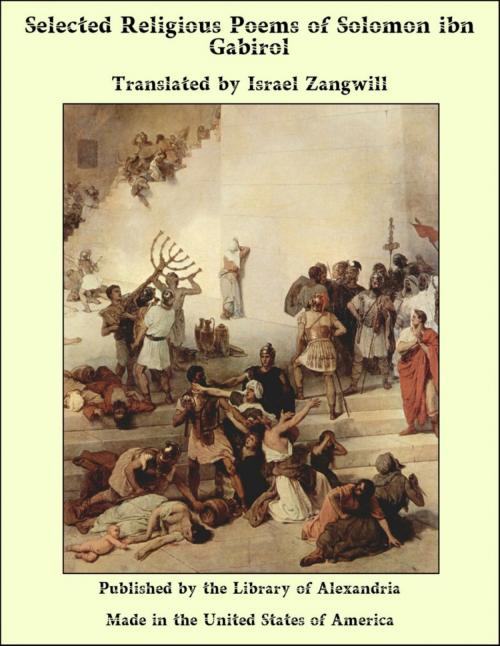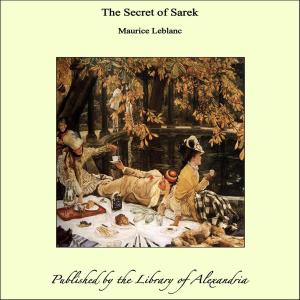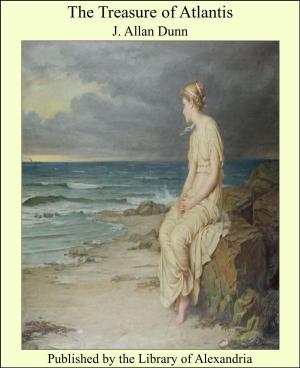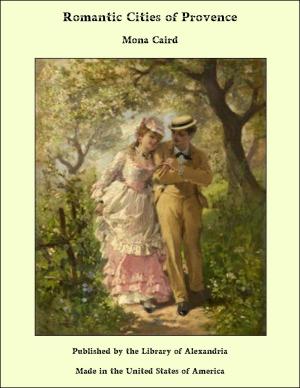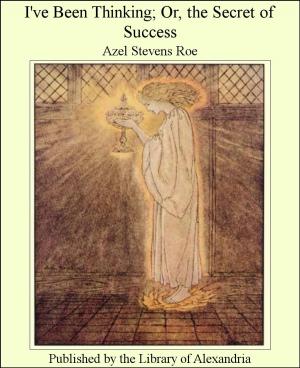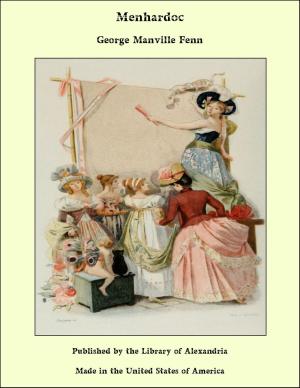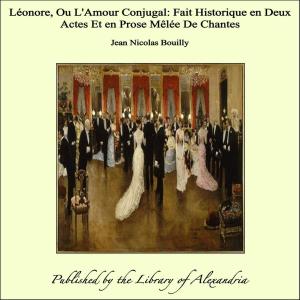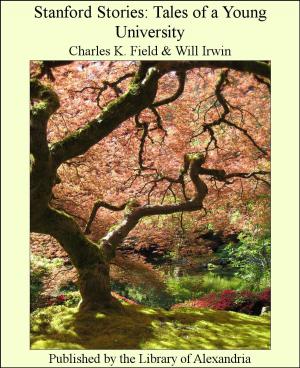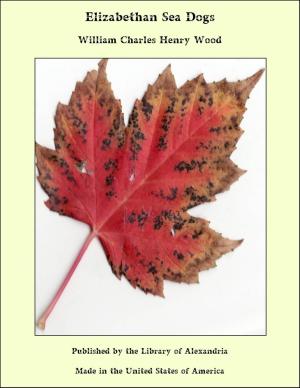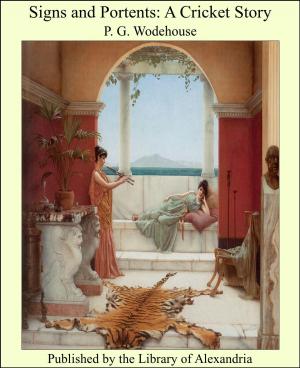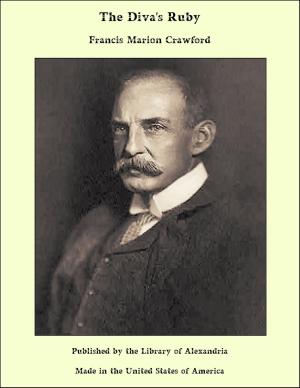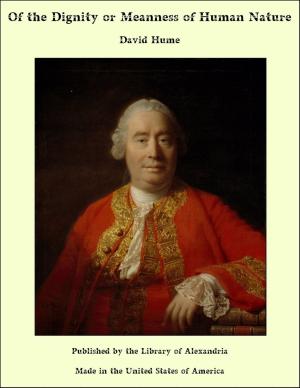Selected Religious Poems of Solomon ibn Gabirol
Nonfiction, Religion & Spirituality, New Age, History, Fiction & Literature| Author: | Israel Zangwill | ISBN: | 9781465581150 |
| Publisher: | Library of Alexandria | Publication: | March 8, 2015 |
| Imprint: | Language: | English |
| Author: | Israel Zangwill |
| ISBN: | 9781465581150 |
| Publisher: | Library of Alexandria |
| Publication: | March 8, 2015 |
| Imprint: | |
| Language: | English |
POETRY, philosophy, and science, apparently three distinct fields of intellectual endeavor, are essentially but three different manifestations of the same spiritual force, which urges man onward to search for the solution of the riddle of existence. Science attacks the problem from the physical side; philosophy grapples with it from the rational, or mental side; poetry tries to penetrate the mystery with its vision. Poetry need not necessarily reveal itself through the art of versification. The astronomer whose eye sweeps through the vast vacancies of space and whose ear catches the harmony of the spheres, the mathematician who calculates the eons, and the physicist who measures the electron and weighs the sun are indeed greater poets than those who merely compose melodious lines. On the other hand, the great poet, who ascends by the light of the divine fire within him to the heights of Pisgah, whence he may look at life from a higher altitude and see it more complete, more in its totality, often catches in a flash of inspiration that which it takes the scientific investigator years of painstaking labor to discover. The difference between those three seekers after truth is only in the method. The aim is the sameto penetrate the veil that hides from us the ultimate truth of life.
POETRY, philosophy, and science, apparently three distinct fields of intellectual endeavor, are essentially but three different manifestations of the same spiritual force, which urges man onward to search for the solution of the riddle of existence. Science attacks the problem from the physical side; philosophy grapples with it from the rational, or mental side; poetry tries to penetrate the mystery with its vision. Poetry need not necessarily reveal itself through the art of versification. The astronomer whose eye sweeps through the vast vacancies of space and whose ear catches the harmony of the spheres, the mathematician who calculates the eons, and the physicist who measures the electron and weighs the sun are indeed greater poets than those who merely compose melodious lines. On the other hand, the great poet, who ascends by the light of the divine fire within him to the heights of Pisgah, whence he may look at life from a higher altitude and see it more complete, more in its totality, often catches in a flash of inspiration that which it takes the scientific investigator years of painstaking labor to discover. The difference between those three seekers after truth is only in the method. The aim is the sameto penetrate the veil that hides from us the ultimate truth of life.
